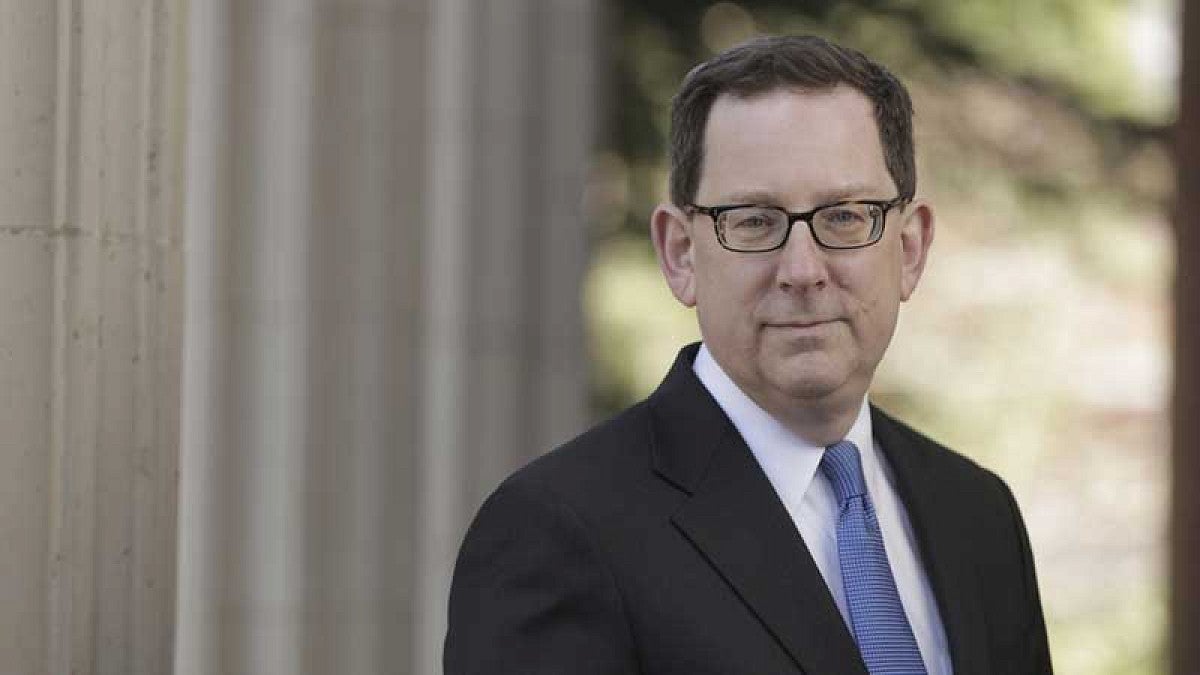UO President Michael H. Schill sent the following message to the campus community on April 13:
Dear University of Oregon community,
We are all facing uncertainty and unprecedented challenges as we work collectively to slow the spread of COVID-19. I am deeply thankful and proud of the way each of you has responded to our rapid shift in operations, while juggling your own personal challenges, to meet our vital mission of teaching, research and service. These are far from normal times, and your dedication is nothing short of amazing.
The university’s move to remote education and the departure of thousands of students from campus has created an immediate impact on our auxiliary operations and finances. We normally house and feed more than 4,500 students; fewer than 225 currently live on campus. We have closed the Student Recreation Center and substantial portions of the Erb Memorial Union. Our athletic teams and venues are dormant because of the cancellation of spring sports. In total, our auxiliary operations project a loss of more than $25 million in net revenue for the spring term, including approximately $3.4 million in student fees that were refunded due to facility and operational closures. Looking past these near-term challenges, we face significant uncertainty about how this global health emergency will impact future operations.
We have taken a number of steps to immediately reduce expenses and prepare for future financial uncertainty. We enacted a hiring freeze, which will remain in place indefinitely. In addition, all senior leadership—vice presidents, school and college deans, and the athletic director—have taken a minimum six-month 10 percent pay reduction. I have taken a 12 percent reduction. Unfortunately, these actions are not nearly sufficient to deal with our current reality.
I deeply regret to inform you that we must also adjust staffing levels in some of our auxiliary departments to meet our present operational needs and address the immediate net revenue loss. We have begun informing 282 employees of changes to their employment status, all within the hard-hit units of housing and dining, the EMU, athletics, PE and Rec, and the access shuttle program. We have, however, developed an alternative to traditional layoffs that is designed to preserve employment relationships, provide financial stability, and ensure continued access to health insurance. This program—called the UO Extended Benefits Program—is designed to retain a connection with these impacted employees, with the goal of bringing them back when work returns to campus. The program was developed after consultation with our unions and employee groups about ways to reduce hardship for employees and position the university to quickly resume operations once this temporary disruption ends.
All impacted employees will receive a minimum 30-day paid notice and then be enrolled in the UO Extended Benefits program through August 31, 2020. During this time, employees will be on leave-without-pay status. Of course, impacted employees are free to end their employment with the university if that is in their best interest. Employees in the UO Extended Benefits Program will be able to apply for unemployment insurance benefits and the UO will to continue to pay its portion of each employee’s health insurance premiums. For a good number of employees it is likely that the combination of expanded unemployment insurance benefits and our health insurance will keep them financially whole during the period. Our hope is that this extended benefits program will provide some financial security and preserve the option of employment with the university until we know more about what the fall term will look like.
A team that includes unit leadership and Human Resources staff has been assembled to assist and support notified employees through this difficult time. Our friends and colleagues deserve our respect, compassion, and gratitude for their service to our students, and I sincerely hope that we will soon welcome them and our students back to campus.
This is not our first challenge, nor will it be our last. We are discussing with each of our employee groups and unions contingencies for responding to the COVID-19 crisis that would further allow the university to reduce operating expenses and protect as many jobs as possible should that become necessary. It is very possible that we will face an enrollment decline in the fall and/or a cut in state funding, and we will need flexibility to preserve the institution’s long-term viability.
I want you to know that my focus, my every waking moment, is on preservation—keeping as whole as possible our university community while continuing to deliver excellent education and life-changing research. I am committed to creatively addressing our financial realities with flexibility and compassion while positioning the university for success in the decades to come.
Sincerely,
Michael H. Schill
President and Professor of Law


